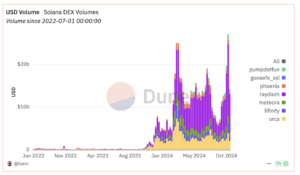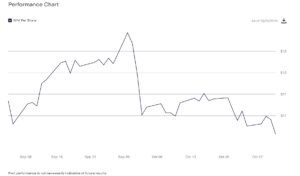In a pivotal move to tighten oversight on crypto transactions, the Internal Revenue Service (IRS) has introduced Form 1099-DA. Experts believe this form will change crypto taxation as we know it today.
This form aims to enhance transparency and ensure compliance within the digital asset market. It marks a significant step forward in crypto taxation and is now accessible on the IRS website.
Why Crypto Community Criticized the Crypto Tax Form
The form will become mandatory for brokers starting January 1, 2025. Brokers, including crypto trading platforms, payment processors, and certain hosted wallet providers, must now report crypto sales and exchanges.
This new mandate closely mirrors traditional securities reporting standards set back in 2008.
Additionally, starting January 1, 2026, brokers will also need to provide information about gains or losses and the basis of the sales. The IRS’s recent addition to Form 1040 asks taxpayers whether they have engaged in digital asset transactions during the tax year.
Read more: The Ultimate US Crypto Tax Guide for 2024
Moreover, the scope of reporting extends to real estate transactions involving crypto payments. From January 1, 2025, title companies, closing attorneys, mortgage lenders, and real estate brokers will be required to report the disposition of digital assets used in real estate deals. They will use Form 1099-S to document the fair market value of such assets.
One notable feature of Form 1099-DA is its approach to wash sales—a tactic often used to claim tax benefits. The form includes a provision for reporting “wash sales loss disallowed.” This rule does not currently apply to cryptocurrencies but signals potential future intentions to regulate digital assets like stocks and securities.
The draft instructions for Form 1099-DA specify the types of transactions that require reporting, along with related withholding information. It also details the necessity for brokers to identify their role in the transaction. Correct identification is crucial whether they are a kiosk operator, digital asset payment processor, or hosted or unhosted wallet provider.
Read more: How to Reduce Your Crypto Tax Liability: A Comprehensive Guide
This regulatory move has stirred considerable discussion within the crypto community. Experts such as Shehan Chandrasekera, the head of tax at CoinTracker, express concerns over privacy. This is because the required collection and dissemination of detailed transaction data to the IRS could potentially impact the pseudo-anonymity that has characterized cryptocurrency transactions.
“This could drastically change how users interact with crypto platforms. This will change “DeFi” as we know it today,” Chandrasekera wrote.
The post IRS Makes Significant Strides to Tax Crypto appeared first on BeInCrypto.







